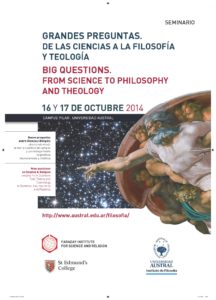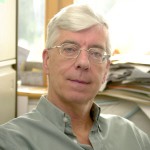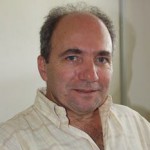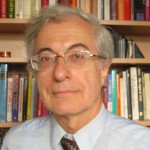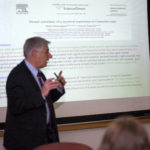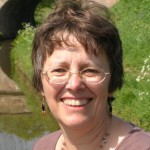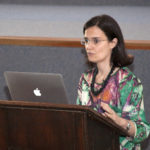On 16 and 17 October 2014, lecturers from the Faraday Institute for Science and Religion at the University of Cambridge visited Austral University to teach this seminar together with Argentinian researchers.
The workshop brought together physicists, engineers, cosmologists, biologists, neuroscientists, philosophers and theologians in a common effort to reduce the gap between the discoveries of contemporary science and philosophical and theological thought.
Place: Auditorium of the Edificio de Grados. Pilar Campus.
Programe
Jueves 16 de octubre
9.15 Inscriptions
10.00 Opening
10.15 Question 1: What Models are the Best Fit for Interactions Between Science and Theology? (¿Qué modelos son los más adecuados para la interacción entre ciencia y teología?) Prof. Denis Alexander.
Denis Alexander holds a doctoral degree in neurochemistry from the Institute of Psychiatry (London). He is the Emeritus Director of the Faraday Institute for Science and Religion and a Fellow at St. Edmund’s College (University of Cambridge). Between 1992 and 2013 he was editor of the journal Science & Christian Belief. He is currently a member of the National Committee of Christians in Science and of the Executive Committee of the International Society for Science and Religion.
11.00 Cofee break
11.30 Pregunta 2: ¿Cuáles fueron los principales hitos en las discusiones entre ciencia y religión? (“What are the Historical Milestones in the Discussions between Science & Religion?”) Prof. Miguel de Asúa.
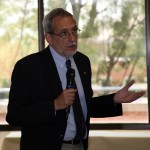 Miguel de Asúa holds a doctoral degree in medicine from the University of Buenos Aires, a bachelor’s degree in theology from the Catholic University of Argentina, a master’s degree in history and philosophy of science and a doctoral degree in history from the University of Notre Dame. He is a Researcher at the National Scientific and Technical Research Council (CONICET) and a Lecturer in History of Science at the National University of San Martín and in Philosophy at the Colegio Máximo of San Miguel. He is a specialist in history of science in Argentina and a full member of the National Academy of Sciences of Buenos Aires and of the National Academy of History.
Miguel de Asúa holds a doctoral degree in medicine from the University of Buenos Aires, a bachelor’s degree in theology from the Catholic University of Argentina, a master’s degree in history and philosophy of science and a doctoral degree in history from the University of Notre Dame. He is a Researcher at the National Scientific and Technical Research Council (CONICET) and a Lecturer in History of Science at the National University of San Martín and in Philosophy at the Colegio Máximo of San Miguel. He is a specialist in history of science in Argentina and a full member of the National Academy of Sciences of Buenos Aires and of the National Academy of History.
12.15 Questions and answers session
13.00 Lunch
15.00 Pregunta 3 (Física): ¿Qué tipo de realidad científica aparece cuando el micromundo de nuestro propio universo es explicado usando el lenguaje de la teoría cuántica de campos? (What Kind of Scientific Reality Appears when the Micro-World of our own Universe Is Explained Using the Language of Quantum Field Theory?) Prof. Gustavo Aucar.
Gustavo Aucar holds a doctoral degree in physics from the University of Buenos Aires and pursued post-doctoral studies at Odense University (Denmark). He is a Researcher at the National Scientific and Technical Research Council (CONICET), the Director of the Scientific Technological Centre CONICET-Northeast and a Lecturer at the National University of the Northeast.
15.45 Coffee break
16.15 Question 4 (Cosmology): Is the Universe Designed? (¿Está diseñado el universo?) Prof. Peter Bussey.
Peter Bussey obtained a master’s degree, the doctoral degree in physics and the doctoral degree in sciences at the University of Cambridge. Prior to moving to Glasgow in 1971, he was a researcher at the University of Cambridge, at the CERN and at the University of Sheffield. He recently retired as Lecturer in Physics at the University of Glasgow, where he continues working as a Researcher at the Institute of Physics.
17.30 Questions and answers session.
18.15 End of the day
Viernes 17 de octubre
9.30 Pregunta 5 (Biología): ¿Cuál es el rol de la información del ADN para el desarrollo de los organismos vivos? (What is the Role of DNA Information for the Development of Living Organisms?) Prof. Jorge Aquino.
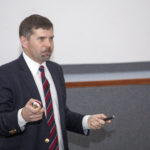
Jorge Aquino holds a bachelor’s degree in biological sciences from the National University of Mar del Plata (Argentina) and a doctoral degree in medicine from the Karolinska Institutet (Stockholm, Sweden). He is a Research Associate at the National Scientific and Technical Research Council (CONICET) and an Affiliated Lecturer at Austral University. His current research focuses on neural crest non-canonical derivatives and the application of mesenchymal stem cells for the experimental treatment of cirrhosis.
10.15 Coffee break
10.45 Question 6 (Genetics & Theology): How Does Contemporary Genetics Interact With Theological Understandings of Human Identity? (¿Cómo se relaciona la genética contemporánea con la comprensión teológica de la identidad humana?”) Prof. Denis Alexander.
11.30 Questions and answers session.
12.15 Lunch
14.30 Pregunta 7 (Neurociencia): Dolor y plasticidad en el sistema somatosensorial adulto: desafíos y oportunidades. ¿Qué se gana al controlar la plasticidad en las neuronas sensoriales primarias? (Pain and Plasticity in the Adult Somatosensory System: Challenges and Opportunities. What Can We Gain by Controlling Plasticity in Primary Sensory Neurons?) Prof. Marcelo J. Villar
Marcelo José Villar is a medical doctor and holds a doctoral degree in medicine from the University of Buenos Aires. He has been the Dean of the Faculty of Biomedical Sciences and the Rector of Austral University. He currently works as a Researcher at the National Scientific and Technical Research Council (CONICET), a Lecturer in the Faculty of Biomedical Sciences at Austral University and a member of several national and international scientific associations.
15.15 Pregunta 8 (Robótica): Inteligencia computacional y sistemas bioinspirados. ¿Podrían las computadoras sustituir a los humanos en el futuro? (Computational Intelligence and Bioinspired Systems. Could Computers Substitute for Humans in the Future?) Prof. Leonardo Rufiner.
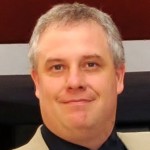
Leonardo Rufiner holds a degree in bioengineering from the National University of Entre Rios, a master degree in Biomedical Engineering from the Autonomous Metropolitan University (Mexico) and a PhD in Engineering from the University of Buenos Aires. He is Researcher at the CONICET and Professor at the National University of Entre Ríos and the Universidad Nacional del Litoral. He directs the Laboratory of Cybernetics (UNER) and is part of the Research Center in Signals, Systems and Computational Intelligence (UNL-CONICET).
16.00 Coffee break
16.30 Question 9 (Theology): What Does it Mean to be Human? (¿Qué significa ser humano?) Prof. Hilary Marlow.
Hilary Marlow studied Social Sciences at the University of Manchester, Biblical Studies at King’s College (London) and earned a doctoral degree in theology at the University of Cambridge. She currently works as the Course Director of the Faraday Institute for Science and Religion and is an Affiliated Lecturer at the University of Cambridge (Faculty of Divinity).
17.15 Questions and answers session
18.00 Final session: ¿Cómo abordar hoy la relación entre ciencia, filosofía y teología? (How do we Approach the Relation between Science, Philosophy & Theology in Today’s World?) Prof. Claudia Vanney.
Claudia Vanney holds a doctoral degree in physics from the University of Buenos Aires and a doctoral degree in philosophy from the University of Navarra. She is the Director of the Institute of Philosophy at Austral University and a Lecturer in the Faculty of Engineering at the same university. She was a Visiting Lecturer at the University of Navarra and at the University of Oxford.
18.30 End of the programe

